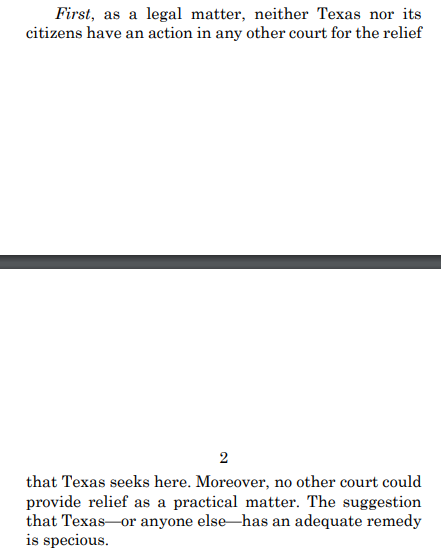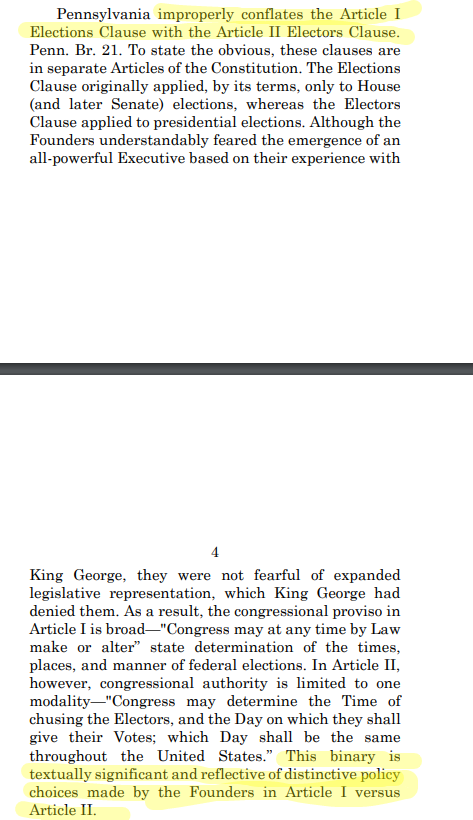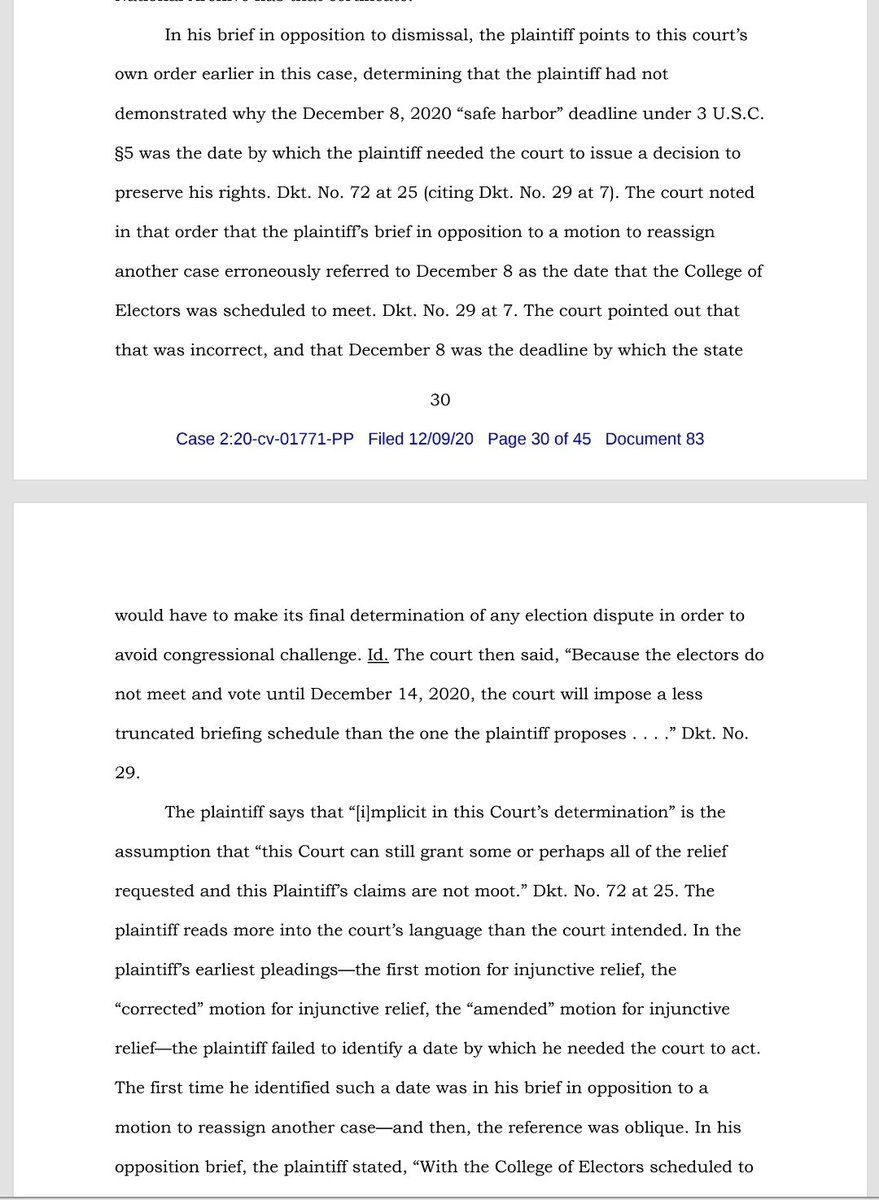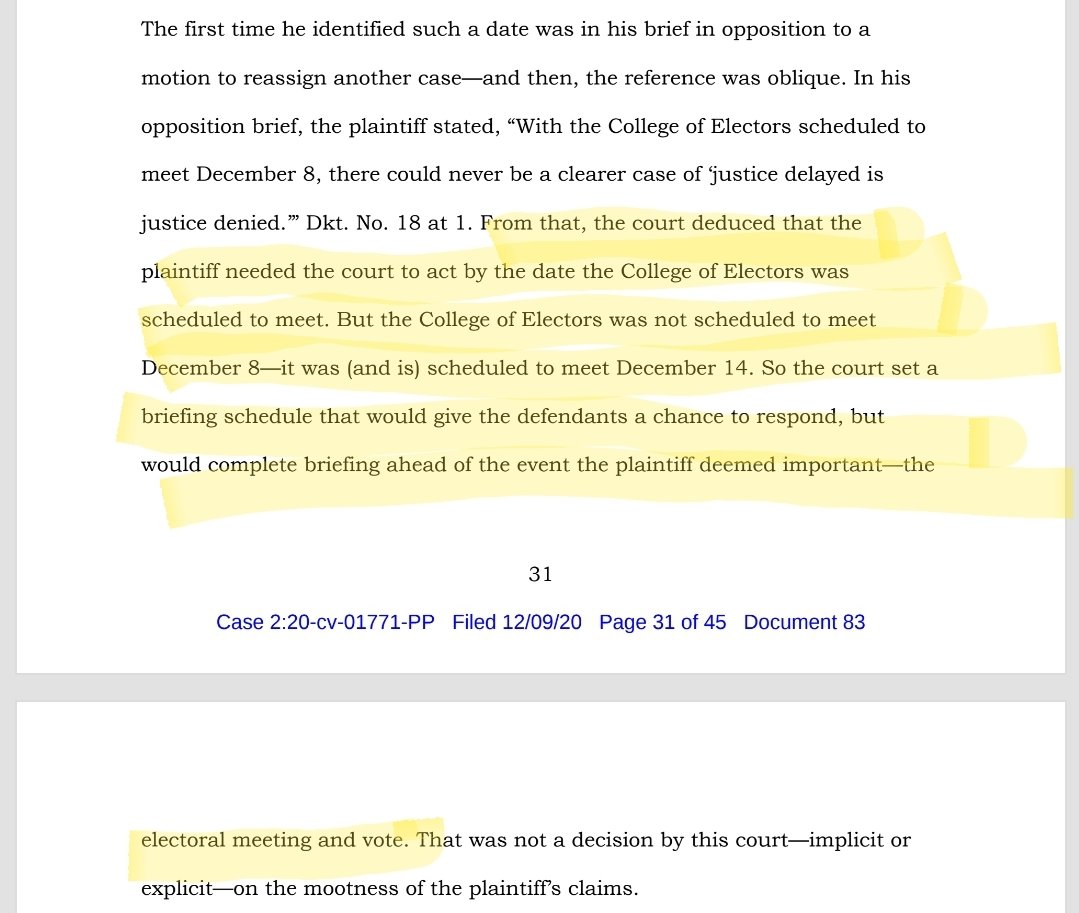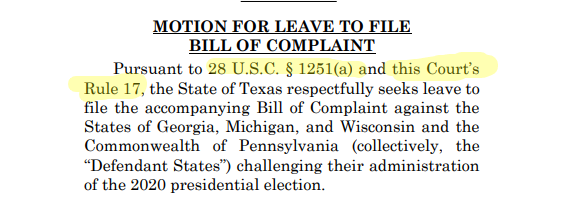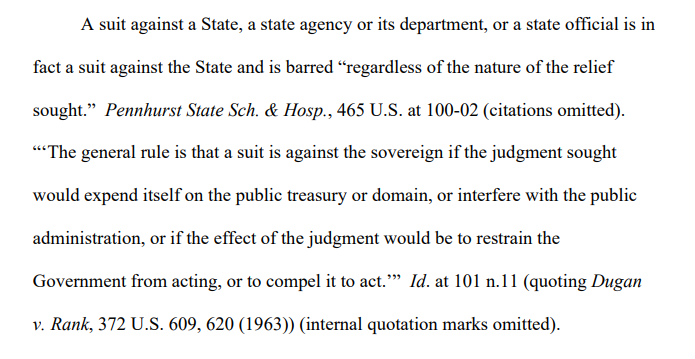
One comment on this Texas SCOTUS nonsense that nobody else seems to have made.
Unless I'm missing something, this lawsuit is actually barred by Federal law. As are any appeals of challenges to the appointment of electors; SCOTUS has no jurisdiction to consider them.
Unless I'm missing something, this lawsuit is actually barred by Federal law. As are any appeals of challenges to the appointment of electors; SCOTUS has no jurisdiction to consider them.
3 USC § 5 is the Federal statute that provides for the "Safe Harbor" everyone's been talking about for days. Here's what it says 
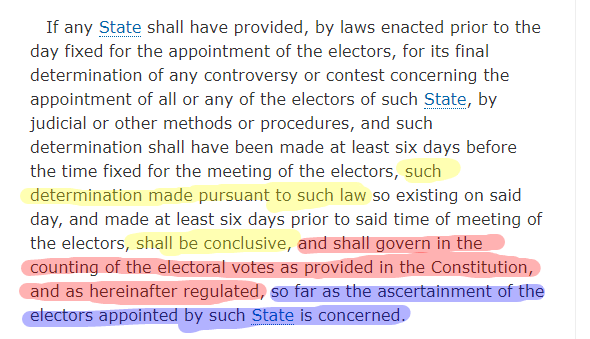
We've all been focused on what the Safe Harbor means for how Congress has to count electoral votes when it meets on January 6. But 3 USC § 5 didn't only address the electoral count
Note the multicolored highlighting. It says that if states certify electoral appointments by 6 days prior to the vote after having finally determined them under state law, then the appointments:
1) Shall be conclusive
AND
2) shall govern in the counting
1) Shall be conclusive
AND
2) shall govern in the counting
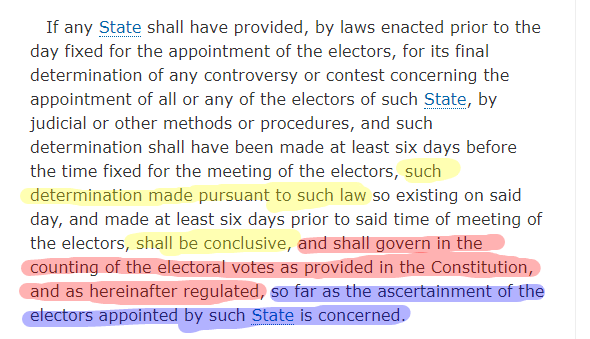
Note that those are written as two different consequences of safe harbor: Conclusiveness AND governing the count.
By ordinary rules of statutory construction (how courts understand the meaning of federal statutes) those two things cannot simply be repetitive
By ordinary rules of statutory construction (how courts understand the meaning of federal statutes) those two things cannot simply be repetitive
"Governing the count" is clear. When Congress is counting electoral votes, it MUST count those that were submitted by electors appointed within the safe harbor.
But if so, how is "conclusiveness" different?
But if so, how is "conclusiveness" different?
As far as I can see, the only other meaning of "shall be conclusive" is "immune from challenge, *whether in the Congressional count or otherwise*"
The other option is to limit "shall be conclusive" to meaning "can't be challenged in the Congressional count" - in which case it would just duplicate "shall govern in the counting" and you could delete "shall be conclusive" from the statute without changing its meaning
So what are the implications of Congress saying that the appointment of electors made within safe harbor is immune to challenge?
Well, the Constitution expressly allows Congress to limit the Supreme Court's appellate jurisdiction. If Congress made the appointments immune from challenge, that would seem to strip the Supreme Court (and any other Federal Court) of jurisdiction to hear a challenge to electors
appointed within the safe harbor.
In other words, Congress made the considered decision that state election contests would be the only way to challenge the appointment of electors.
In other words, Congress made the considered decision that state election contests would be the only way to challenge the appointment of electors.
Now there's a wrinkle here - Congress *can't* strip SCOTUS of original jurisdiction - but that doesn't mean 3 USC §5 wouldn't also provide a complete substantive defense to Texas's requests in its SCOTUS complaint
Particularly since it isn't claiming that 3 USC §5 is unconstitutional.
Anyway, need to go get Littler Girl to bed. Fully expect to get back here and find far brighter attorneys than me strongly disagreeing with this. But ... it seems to hold, no?
Anyway, need to go get Littler Girl to bed. Fully expect to get back here and find far brighter attorneys than me strongly disagreeing with this. But ... it seems to hold, no?
• • •
Missing some Tweet in this thread? You can try to
force a refresh


